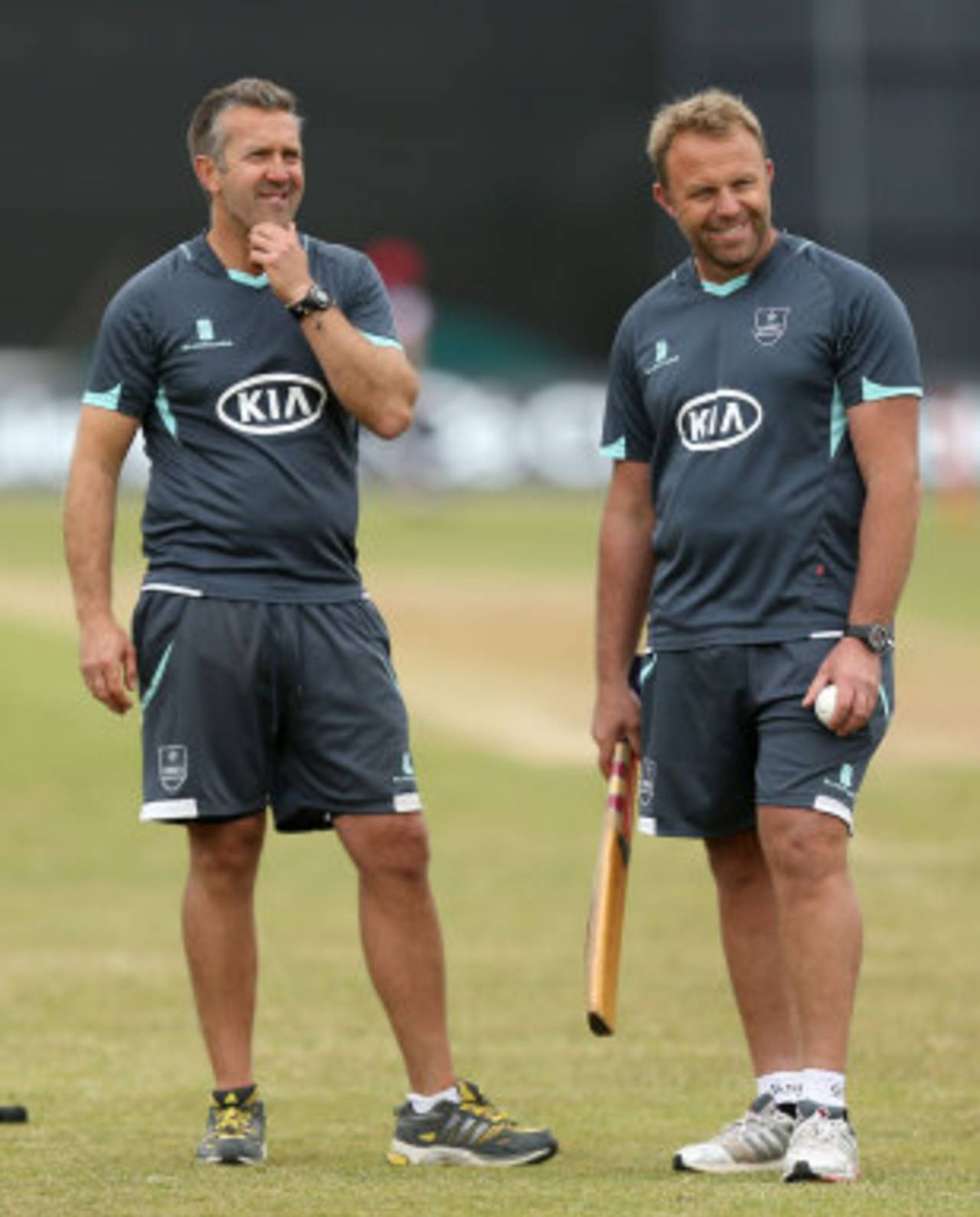Mid-season coaching sackings tend to be more the preserve of football. But no one can fairly accuse Surrey of knee-jerkism after their removal of Chris Adams as manager.
Adams coached Surrey for four-and-a-half-seasons. In a total of 72 County Championship games they won 16 - and only eight in the 56 games excluding their promotion year in 2011. While Surrey won the 2011 CB40, their first trophy since 2003, they did not reach the Twenty20 quarter-finals in Adams' reign.
The statistical record, therefore, is not an impressive one. But no account of Surrey's problems can neglect the tragedy of Tom Maynard's death. Poignantly, the one-year anniversary of the tragedy that ripped the heart out of Surrey will come tomorrow.
The players lost a friend, a lively team-mate and one of the side's most important players. The reverberations ran deep. An emotionally-drained captain, Rory Hamilton-Brown, needed to leave the county to make a fresh start, Steve Davies suffered depression and Mark Ramprakash, one of county cricket's most prolific and intensely-driven run-scorers, retired.
Surrey recovered remarkably to retain their Division One status. The decision to entrust the captaincy to Gareth Batty was a shrewd one.
But some of Adams' other decisions were more questionable. Nothing attracted more opprobrium than the recruiting of so many older players in an attempt to provide short-term stability. Signing world-class players with a strong record of leadership such as South Africa's Graeme Smith and Australia's Ricky Ponting was one thing; the addition of Zander de Bruyn, Jon Lewis, Gary Keedy and Vikram Solanki was quite another.
During Surrey's recent defeat in a televised CB40 game at Chelmsford, six players were aged 37 or above, none of whom were home grown.
Leaving Surrey winless after eight Championship games, eight points above the relegation zone, and with little chance of progression in the YB40 competition was certainly not what Adams envisaged when he arrived as Surrey coach before the 2009 season.
After his captaincy success at Sussex, leading them to the first three Championship titles in their history, Adams, vigorous, ambitious and successful, had seemed to many to be the perfect candidate to reverse Surrey's slump. Yorkshire had been so keen to sign him that they also sought him out to be their skipper and director of cricket in 2006, but failed to persuade him he would have the authority he wanted.
Surrey made that commitment. Upon arriving at The Oval, Adams proclaimed that it was "Year Zero". He rather had a point: the squad was old, lacking in direction and, as the jibe of "Ramprakashshire" showed, lacking quality too.
There was no better indication of this than that season's revolving captaincy. Incongruous as it now seems, the armband was worn by Michael Brown and Stewart Walters, two players of limited pedigree.
The first season brought plenty of unfamiliar faces - 27 players appeared in the Championship - but rather less success. A solitary Championship win left Surrey seventh in Division Two. It was one of their lowest points in an illustrious history.
Nothing attracted more opprobrium than the recruiting of so many older players in attempt to provide short-term stability.
Adams recognised the need for radical change. In Rory Hamilton-Brown - a product of Surrey's youth system and, briefly, a team-mate of Adams' at Sussex - he identified a man who could, in the manner of Adam Hollioake, who had skippered to Surrey to great things, or as Adams had himself at Sussex, lead the club for an extended period.
A six-figure salary and the captaincy constituted an extraordinary degree of faith in a 22-year-old who had played only six Championship games. As Adams and Hamilton-Brown stood together, with the director of cricket lavishing praise upon his young student, some reckoned it was the biggest gamble in Surrey's history.
And there were plenty of problems - Hamilton-Brown was not short of self-confidence but his batting remained stubbornly cavalier while tactically his inexperience was often clear.
Despite three expensive new signings to accompany him - Batty, Davies and Chris Tremlett - Surrey remained far too erratic to challenge in any format. If 2009 was Year Zero, 2010 could only be described as Year 0.5, at best, although Adams could claim a part in England's Ashes triumph for inspiring Tremlett's rejuvenation.
It Sort of Clicks was the title of one of Ian Botham's autobiographies, and it was an appropriate description for Surrey's triumphant 2011. On August 12, Surrey had to reflect on a new nadir: losing 20 wickets for 177 at Canterbury. Five weeks later they were celebrating a double - Championship promotion and a CB40 triumph. Few people had seen that coming, but it suggested that Adams' Surrey were on the march.
Adams could feel especially vindicated, too: Tim Linley, given a chance where others had spurned him, took 73 Championship wickets; Hamilton-Brown, a captain beginning to attract more favourable attention, was man-of-the-match in the CB40 final; and Maynard, one of the most exciting young one-day batsmen around, had played pivotal innings.
But the smiles of that day were seldom a feature of Adams' regime. There was certainly no shortage of cricketing misfortune: persistent injuries to key players, especially overseas ones; and an Oval wicket that often seemed designed to neuter their pace bowling.
But ultimately a coach with Adams' resources was expected to overcome such problems. His years were marked by the singular failure of batsmen to learn. Signs of progress had been replaced by a sense of exhaustion and divided opinions about how to rebuild the county. Surrey decided that Adams was no longer the appropriate man for the job.
